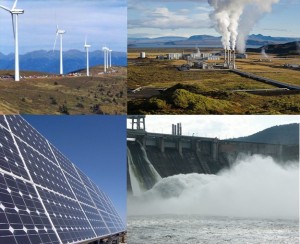Benefits of renewable energy
 Renewable energy has rightly been seen as the long term solution and future to the energy we use on an everyday basis. With advances in technology, renewable energy is being used more and more whether on a commercial or personal level. Engineering companies such as Ausenco reviews the importance of renewable energy and what it can bring to its clients from all different aspects: Environmentally, economically and socially. Renewable energy has a number of benefits and is the direction and technology that new and old companies are implementing more and more.
Renewable energy has rightly been seen as the long term solution and future to the energy we use on an everyday basis. With advances in technology, renewable energy is being used more and more whether on a commercial or personal level. Engineering companies such as Ausenco reviews the importance of renewable energy and what it can bring to its clients from all different aspects: Environmentally, economically and socially. Renewable energy has a number of benefits and is the direction and technology that new and old companies are implementing more and more.
Environmental benefits
It is a known fact and scientifically proven that renewable energy systems zero or few greenhouse gas emissions whilst being operated, and only use up limited amounts during the manufacturing process of the equipment or fuels. Renewable energy also has the environmental benefits of producing few air and water pollutants and causing limited wastes and land disruption. Carefully located and therefore planned, energy equipment causes fewer land use conflicts in comparison to the construction of a nuclear power plant on the same piece of land. Non-renewable energy sources and fossil fuels cause major impacts on the land and water resources during the exploration, extraction and production process.
Job creation
The renewable energy market has created a whole new industry and has therefore required the skills of a new and trained workforce. Implementing energy efficient and renewable energy sources has created a new job market that is permanent and not cyclical. It is strongly believed and argued that employment created from low-impact renewable energy sources would be equal to or greater than those created by an equivalent fossil-fuel based energy source. This is as renewable energy sources are typically labour intensive whereas their non-renewable energy counterparts tend to be mechanised and capital intensive.
Stable energy prices
Renewable energy has the added benefit of stabilising energy prices, with the cost of renewable energy mostly reliant on invested capital and not on the rising costs of an international resource, such as oil or uranium. Costs of future financial liabilities, environmental and health impacts are eliminated due to the nature and functionality of renewable energy. Given the volatile crude oil prices and instability of prices in natural gas and deregulated electricity markets, renewable energy does not and will not face such issues. This has seen many governments and businesses increasing the amount of renewable energy they purchase from renewable sources. They have done so not only as a move to become more socially responsible but in as a way of getting around the high energy prices.
Social benefits
Generating energy using sustainable resources and renewable energy has significant health benefits when compared to energy produced by fossil fuels. Air and water pollution are just some of the pollutants linked to causing breathing problems to those communities living near to a fossil fuel plant. Renewable energy sources such as wind, solar and hydroelectric power systems generate electricity without emitting air pollutants. Whilst geothermal and biomass energy emits some air pollutants, this is generally significantly less than the emissions from coal and natural gas fired power plants.
Even though the debate rages on between renewable and non-renewable energy resources, more and more advocates are backing renewable energy. The support of renewable energy can be seen by the investment in renewable and sustainable projects and technology along with the planned reduction of using non-renewable resources. It can therefore be stated that the benefits of renewable energy greatly outweigh those on non-renewable resources and will be the concentration of future developments and investment.
Author Bio: The article was written by Cass Brookes. Cass has over 5 years of journalism experience writing for small businesses, Green and Eco-friendly innovated companies, and the retail industry.


